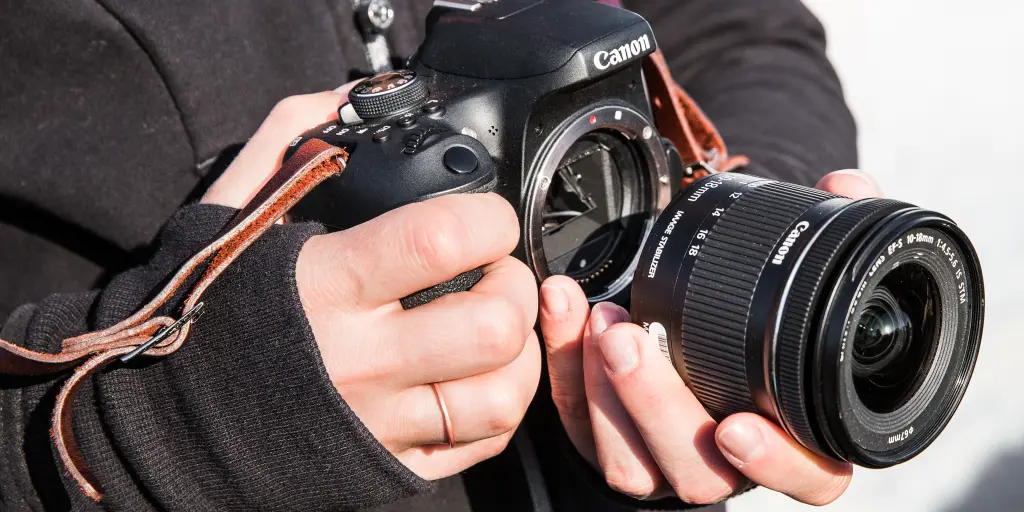Canon EF lenses are an integral part of Canon’s imaging ecosystem, renowned for their exceptional quality and versatility. Whether you’re a professional photographer, a hobbyist, or someone who simply loves capturing memorable moments, understanding Canon EF lenses is essential for achieving outstanding results. In this comprehensive guide, we’ll delve into the world of Canon EF lenses, exploring everything from terminology to practical tips for maximizing their potential.
Understanding Canon EF Lens Terminology
Before diving into specific lens models, it’s crucial to grasp the terminology associated with Canon EF lenses. Canon offers three main types of lenses: EF, EF-S, and EF-M. EF lenses are designed for full-frame Canon DSLR cameras, while EF-S lenses are tailored for APS-C sensor cameras. EF-M lenses, on the other hand, are specifically crafted for Canon’s mirrorless cameras.
Additionally, when discussing lenses, two key parameters often come into play: focal length and aperture. Focal length determines the angle of view and magnification of the lens, ranging from wide-angle to telephoto. Aperture, measured in f-stops, regulates the amount of light entering the lens and affects depth of field, with lower f-stop values allowing more light and shallower depth of field.
Popular Canon EF Lens Models
Canon boasts an extensive lineup of EF lenses, catering to various photography genres and preferences. Among the most popular models are the Canon EF 50mm f/1.8 STM, renowned for its affordability and excellent low-light performance, and the Canon EF 24-70mm f/2.8L II USM, prized for its versatility and superb image quality.
For landscape enthusiasts, the Canon EF 16-35mm f/2.8L III USM offers stunning wide-angle capabilities, while portrait photographers often swear by the Canon EF 85mm f/1.2L II USM for its exquisite bokeh and flattering focal length.
Choosing the Right Canon EF Lens
Selecting the perfect Canon EF lens depends on various factors, including your photography style, budget, and specific needs. Landscape photographers may prioritize wide-angle lenses with exceptional sharpness and minimal distortion, while portrait photographers might opt for prime lenses with wide apertures for beautiful background blur.
It’s essential to consider factors such as lens weight, size, and compatibility with your camera body when making your selection. Investing in high-quality lenses that complement your shooting style can significantly elevate your photography experience.
Tips for Using Canon EF Lenses
To ensure optimal performance and longevity of your Canon EF lenses, proper care and maintenance are paramount. Always handle lenses with care, using lens caps and protective cases to prevent scratches and dust accumulation. Regularly clean lenses with a soft brush or microfiber cloth to remove debris and smudges, and avoid exposing them to extreme temperatures or humidity.
Experimenting with different shooting techniques and settings can help you unleash the full potential of your Canon EF lenses. Play around with aperture settings to achieve creative effects like bokeh or experiment with different focal lengths to capture unique perspectives.
Comparing Canon EF Lenses to Other Brands
While Canon EF lenses are highly regarded for their performance and reliability, it’s essential to acknowledge the competition in the lens market. Other brands, such as Nikon, Sony, and Sigma, offer compelling alternatives with their own unique strengths and features.
Photographers should carefully evaluate their options and choose lenses that best suit their individual preferences and requirements. Ultimately, the choice between Canon EF lenses and other brands depends on factors such as image quality, autofocus speed, and compatibility with existing equipment.
Future Trends in Canon EF Lens Technology
As technology continues to evolve, we can expect Canon to push the boundaries of lens innovation with advancements in optics, autofocus systems, and image stabilization. Future Canon EF lenses may incorporate cutting-edge features such as nano-structure coatings for enhanced optical performance, AI-driven autofocus algorithms for lightning-fast focusing, and integrated image sensors for real-time data feedback.
Photographers can look forward to an exciting future of imaging possibilities, with Canon EF lenses at the forefront of innovation and excellence.
Conclusion
In conclusion, Canon EF lenses are indispensable tools for photographers seeking uncompromising quality and versatility in their craft. With a diverse range of models catering to various shooting scenarios and preferences, Canon EF lenses empower photographers to unleash their creativity and capture stunning images that tell compelling stories.
Whether you’re a seasoned professional or an enthusiastic amateur, investing in Canon EF lenses is a decision that promises to elevate your photography experience to new heights. Explore the possibilities, experiment with different lenses, and embark on a journey of visual discovery with Canon EF lenses by your side.
FAQs (Frequently Asked Questions)
- Are Canon EF lenses compatible with mirrorless cameras? Canon EF lenses can be used with Canon’s mirrorless cameras using an EF-EOS R adapter, ensuring full compatibility and functionality.
- What is the difference between EF and EF-S lenses? EF lenses are designed for full-frame Canon DSLR cameras, while EF-S lenses are specifically crafted for APS-C sensor cameras, offering a narrower field of view.
- Do Canon EF lenses work with other camera brands? Canon EF lenses are designed for Canon cameras and may not be compatible with cameras from other brands without the use of adapters.
- Are prime lenses better than zoom lenses for photography? Prime lenses typically offer wider apertures and superior image quality compared to zoom lenses but have fixed focal lengths. Zoom lenses, on the other hand, provide versatility and convenience by covering a range of focal lengths.
- How often should I clean my Canon EF lenses? It’s recommended to clean Canon EF lenses regularly, especially after each use in dusty or humid conditions, to maintain optimal performance and image quality.










